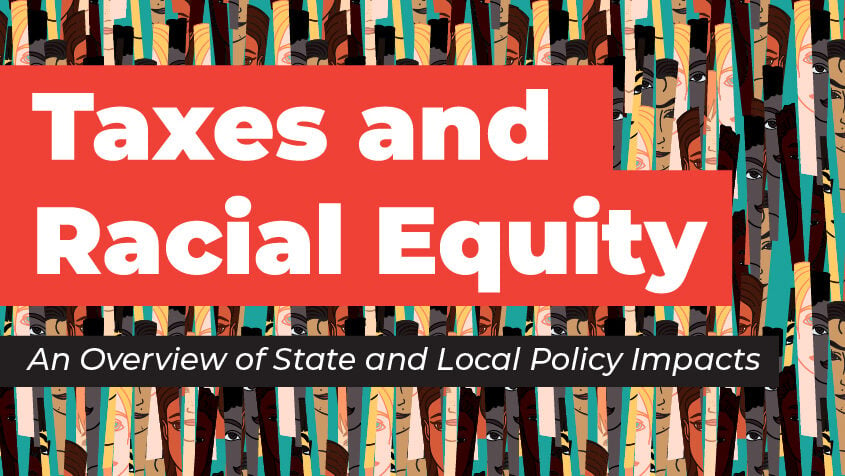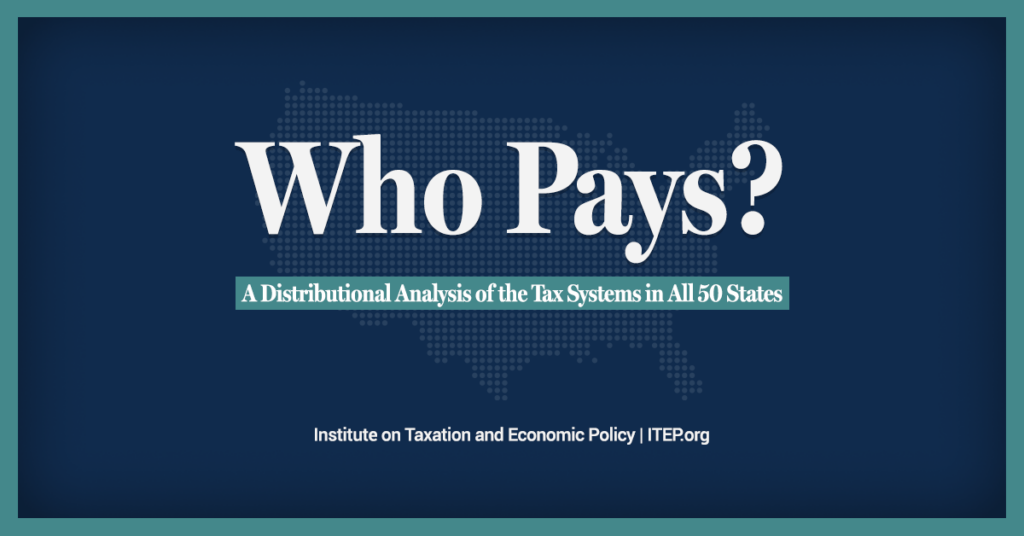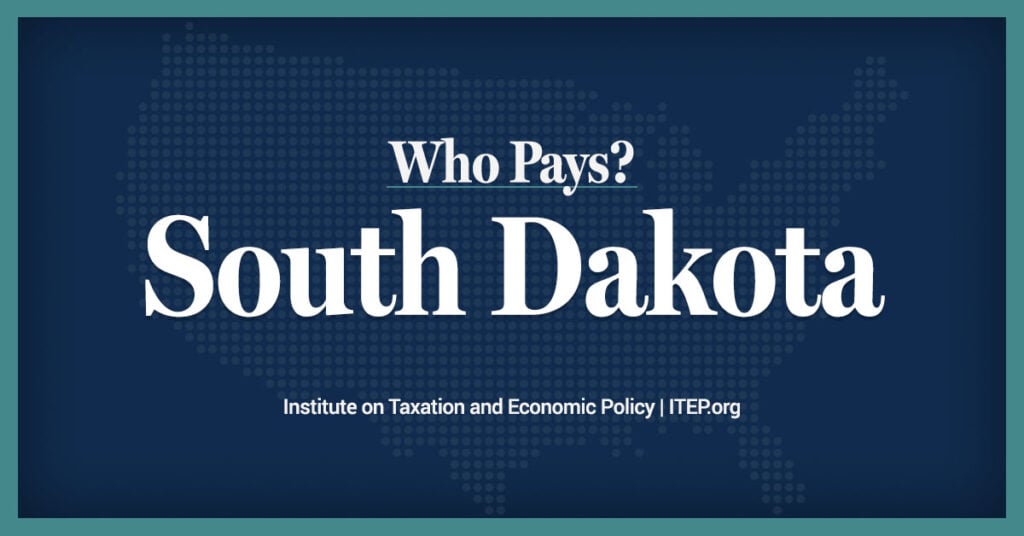Lawmakers across the country are taking aim at property taxes with a new strategy: raising sales taxes instead. Doing so would create a regressive tax shift that puts unfair burdens on renters and reduces the strength of local government revenues.
A variety of municipalities and states are looking into this kind of harmful tax swap, including:
- Thomas County, Georgia: The county has not raised taxes since 2013, but the recent state referendum that created an opt-out homestead exemption led county leaders to explore adopting a local sales tax.
- Anchorage, Alaska: A group of city businesses has pushed the council to adopt a 3 percent sales tax, with two-thirds of the tax going to directly offset property taxes.
- Hartford, Vermont: The Selectboard has placed a referendum on the March 2025 ballot to create a local sales tax, and members of that board have pushed that this may offset existing property tax increases.
- South Dakota: State legislators pre-filed bills to cut property taxes, including a proposal to reduce the school assessment rate for homeowners and farm properties, as well as capping annual growth in assessments to 3 percent.
- Nebraska: In August 2024, Gov. Jim Pillen sought to reduce local property taxes by replacing $2.6 billion in school property tax revenues with a new state sales tax regime. This plan failed, and a much smaller $182 million property tax cut passed.
Replacing Property Tax Revenue with Sales Tax Revenue is a Bad Idea
Offsetting property taxes with sales taxes hurts equity
Attempts to offset property taxes with a sales tax increase will be regressive and harm lower-income families. Sales taxes inevitably take a larger share of income from low- and middle-income families than wealthy families because lower-income families usually have to spend much more of what they earn on basic expenses. Property taxes are also somewhat regressive but not as regressive as consumption taxes.
In the vast majority of states, low-income families pay a higher share of their income in state and local taxes than everyone else despite having the least ability to pay. The best way to flip this structure would be to adopt graduated income taxes or other taxes that are loosely based on ability to pay. While that isn’t an option for many localities due to state restrictions, replacing property taxes with a sales tax would make this overall regressivity even worse.
Offsetting property taxes with sales taxes increases the volatility of the tax base
In addition to the regressivity of sales taxes, there is another drawback to adopting sales taxes. Sales taxes follow the business cycle, which means that when the economy is doing well, sales tax receipts are high. When the economy slows down, sales tax receipts accordingly fall. This means that sales taxes are volatile compared to the relative stability of the property tax.
While property taxes have been rising rapidly across many parts of the country, it is unlikely that those increases will continue. Home prices are starting to fall across the country, and the rapid year-over-year property tax increases are likely to slow down.
States and municipalities are not thinking about the long-term health of their finances when they look to cut property taxes. Replacing stable property tax revenue with unstable sales tax revenue can lead to budget uncertainty, including cuts to essential services currently supported with predictable property tax revenue.
Property tax cuts can make it more difficult for young homebuyers to enter the property market
Some economists argue that property tax cuts, such as California’s Proposition 13 or Massachusetts’ Prop 2 1/2, have had the unintended effect of reducing the supply of homes and making it harder for young families to enter the property ladder. They found that higher expected property taxes can lower purchase prices while artificially low property taxes incentivize families, and particularly older homeowners, to stay in their existing properties rather than downsizing, creating a “lock-in” effect and ultimately reducing the supply of homes appropriate for younger families. This causes home prices to rise as more families compete for fewer homes.
Raising Sales Taxes Will Hurt Renters
Legislators in South Dakota recently put forth a bill to offset the state’s property taxes with higher sales taxes. The legislation would replace locally generated property tax revenue with a statewide sales tax increase. Despite the fact that South Dakota lowered state sales tax rates early in 2024 due to an influx of pandemic aid from the federal government, the state now wishes to raise them above the prior rate in order to cut property taxes.
South Dakota’s property classification for school districts has different maximum tax rates for agricultural, owner-occupied, and all other properties. This differential rate is meant to protect farmers and homeowners from rising school levies, which are frequently the most expensive line item on a property tax bill.
However, 31 percent of South Dakotans live in rental housing according to the American Community Survey. In other words, nearly one in three residents who indirectly pay property taxes through their rent would be subjected to higher sales taxes to subsidize a property tax cut for wealthier homeowners. According to our Who Pays? report, South Dakota has the sixth-most regressive tax system in the country, due to a lack of personal income or corporate taxes combined with an overwhelming reliance on sales taxes.
This is not a problem unique to South Dakota. States across the country privilege homeowners by giving property tax cuts, exemptions, and other subsidies to people who own their own homes. While some states have circuit breakers that apply to renters, most property tax breaks are designed around owner-occupants. Renters are more likely to be cost-burdened by housing costs than homeowners are. While rental subsidies exist, programs like the housing voucher program are only available to one-quarter of renters who qualify.
The Housing Crisis Will Not Be Solved with Property Tax Cuts
As property values have risen across the country, residents are taking aim at the property tax in a misguided attempt to make housing more affordable.
On one hand, higher property taxes are a legitimate concern for low- and middle-income earners, especially those with fixed incomes. Property owners are faced with rapidly rising assessments as the real estate market has exploded. For homeowners with fixed-rate mortgages or paid-off homes, the largest piece of their housing cost that changes year to year is the amount of property tax they pay.
That said, property tax cuts do not address the primary factors that contribute to housing unaffordability. Housing costs are driven by a variety of factors, including insurance rates, mortgage rates, property tax rates, and how expensive it is to build new homes across the country. Most importantly, housing costs are driven by the cost of homes. Zoning restrictions, construction and permitting costs, and an overall lack of inventory have driven up home prices.
States and municipalities have other tools to deal with the housing crisis (like inclusive zoning, housing assistance to low-income residents, and subsidized supportive housing), but often rely on property tax cuts. Property tax cuts are broadly popular with property owners, but frequently do not reach renters, either through intentional design (like only applying to owner-occupied homes) or through landlord rent-seeking. Most economists assume that landlords pass on a portion of property tax costs to renters, but it is unlikely they would cut rents in response to property tax cuts, especially in the short-term.
Alternatives to Consider
If the concern is for residents paying too high a portion of their incomes on property taxes, states have a much more efficient and equitable tool available to them: circuit breakers. These can extend to renters and homeowners alike, and do not rely on cutting taxes to businesses who are making money with the properties they own.
Local governments who wish to replace property tax revenue with sales taxes should consider diversifying the things sales taxes affect, such as extending sales taxes to services as well as goods. Localities could also consider further diversification for visitors and tourists through hotel, restaurant, and rental car taxes.
In addition, localities concerned about the impact of property taxes on taxpayers of all types should consider amending assessment practices to ensure fair, accurate assessments. Nationwide, property tax assessments are inaccurate and frequently tilted towards the wealthiest homeowners. In addition, property tax assessments are plagued by racial bias, with Black and Latino homeowners receiving unfairly high assessments compared to white owners.
If states wish to bring down the cost of schools on local tax bills, lawmakers could directly support those efforts through a fair and progressive state income tax. It is the single most effective, efficient, and equitable tax that states can harness. In addition, connecting state-level school funding to a formula to support the lowest-income school districts can further support the students in the poorest parts of the state.





